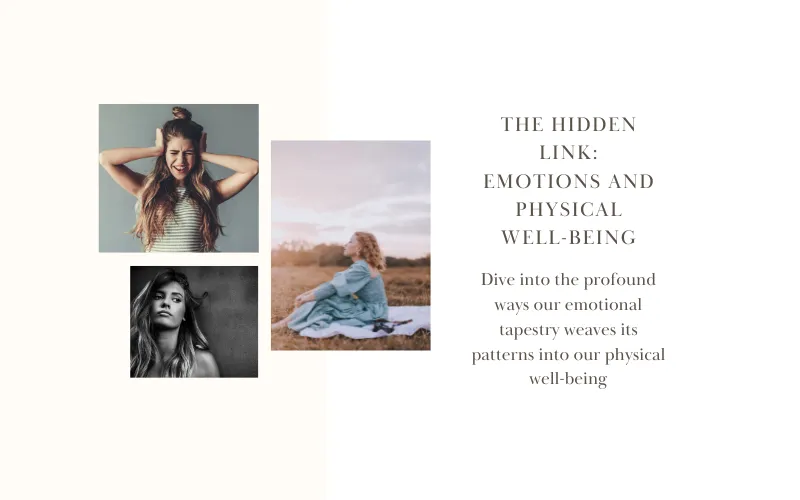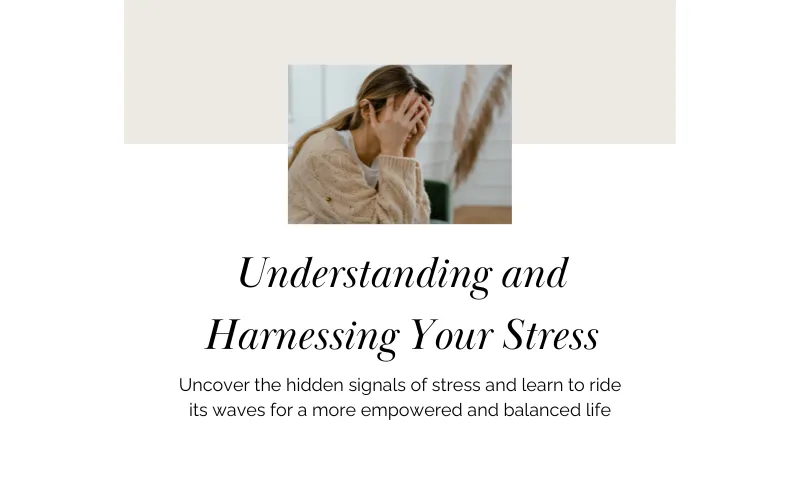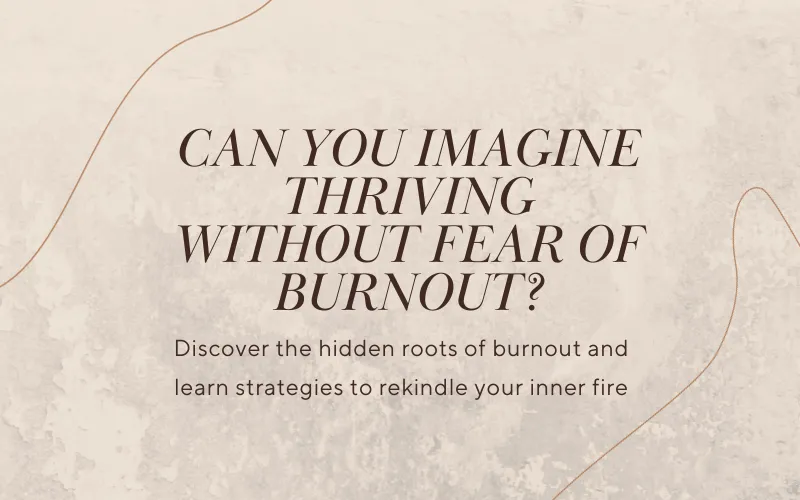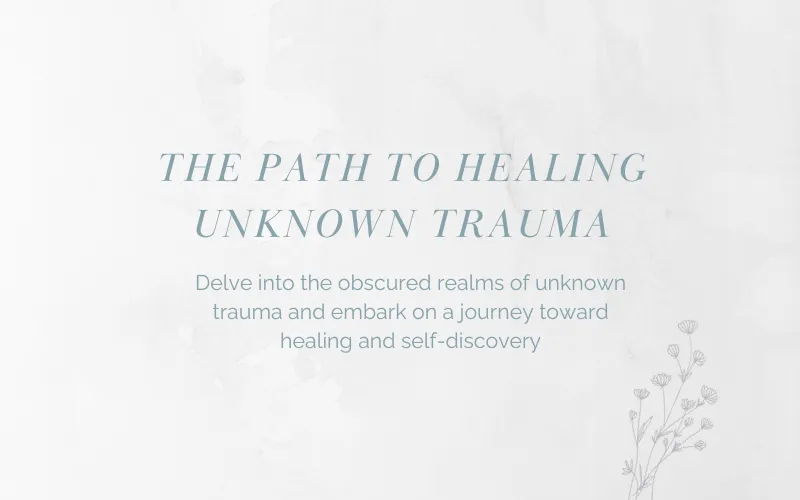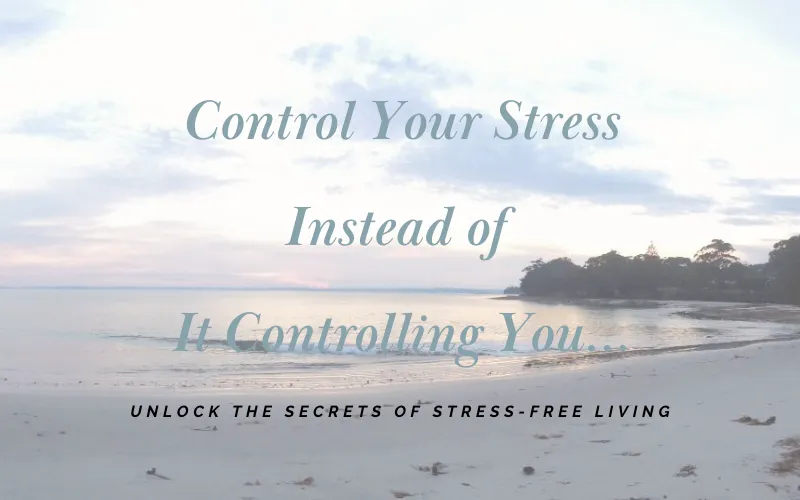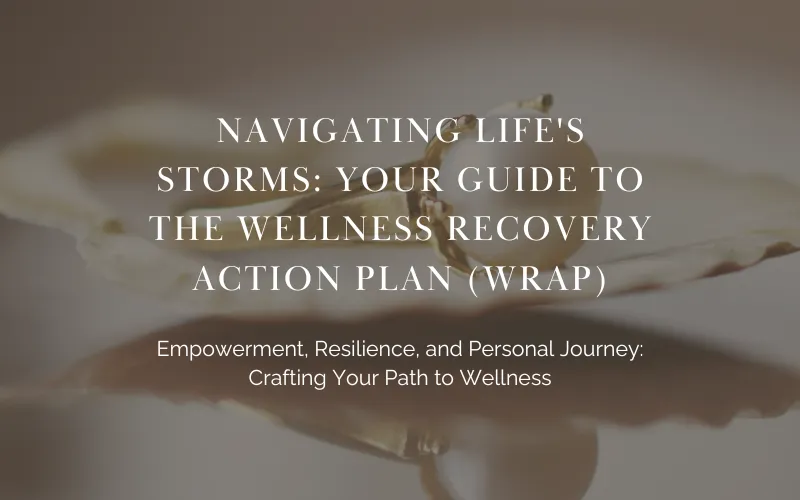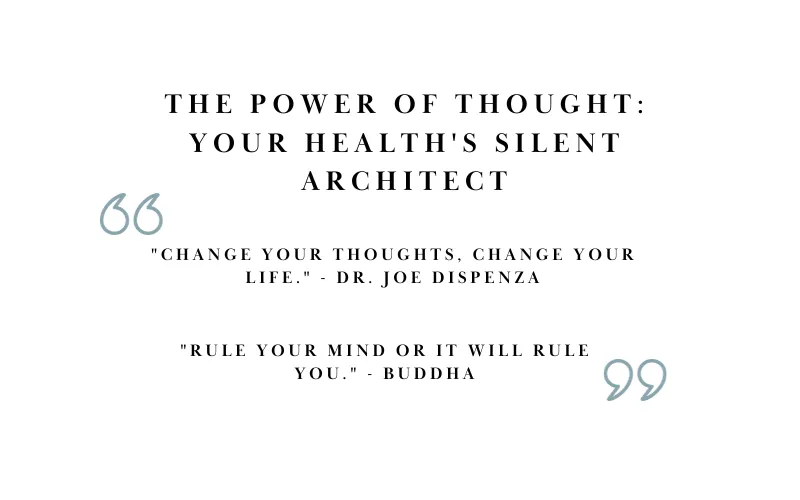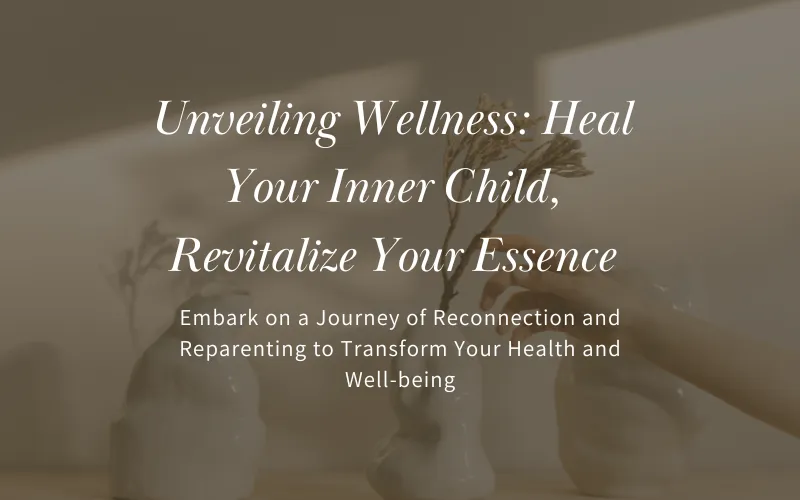Healing the Inner Child: Understanding the Profound Link Between Past Wounds and Present Wellness
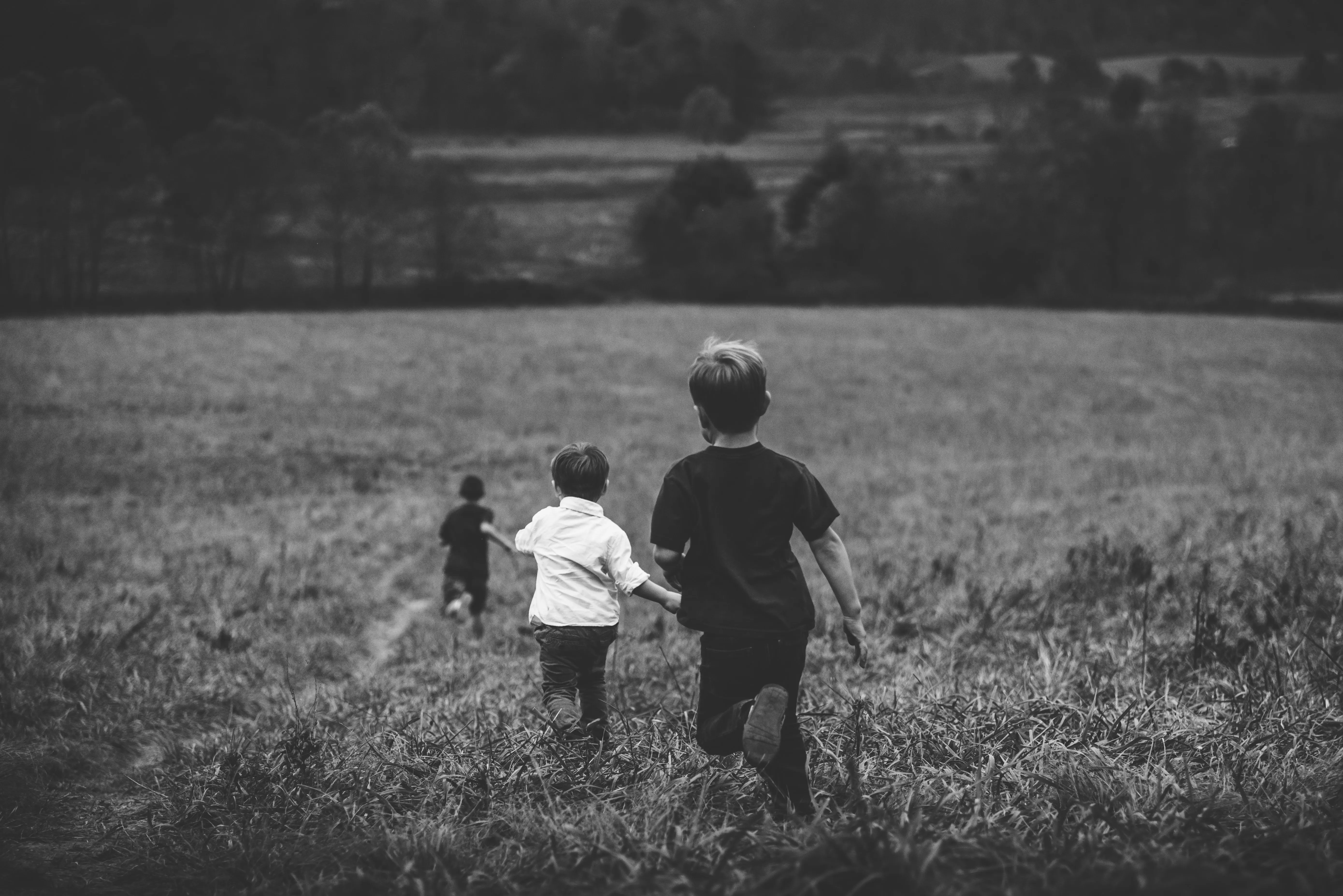
Unveiling the Complexities of the Inner Child and Chronic Health Issues
In the intricate tapestry of human psychology, the concept of the inner child holds a distinct place. It's not a literal child but a metaphorical one, representing the 'childlike' aspect within our unconscious mind. This part of us is a reservoir of joy, innocence, sensitivity, and, significantly, our deepest wounds. These wounds often stem from Adverse Childhood Experiences (ACEs) — traumatic events that occur during childhood — and Personality Characteristics Experiences (PCEs) — traits we develop, often in response to our environments.
Many of us carry the scars from our childhood, often unknowingly. These scars can originate from various sources — traumatic experiences, emotional neglect, or the absence of a sense of security and protection. Safety isn't just about our physical well-being; it's also about our emotional, psychological, and spiritual states. A truly safe environment is one where our boundaries are respected, our emotions are validated, and we're surrounded by unconditional love and support.
The Lingering Shadows of Childhood Trauma
However, not everyone is fortunate enough to experience such an environment. The wounds inflicted upon our inner child can manifest in adulthood in numerous ways, including chronic health issues, persistent fatigue, and even burnout. These manifestations are not just 'in the head' — they have tangible effects on our physical health. Stress and trauma can trigger a cascade of changes in the body, including hormonal imbalances and inflammation, both of which are linked to a host of health issues.
Moreover, our wounded inner child shapes our perceptions, leading us to interpret and react to situations based on past traumas. This lens often distorts reality, causing us to overreact, withdraw, or self-sabotage. It's a survival mechanism that, while once protective, becomes maladaptive in adulthood. This is where the role of ACEs becomes particularly salient. ACEs, ranging from abuse and neglect to witnessing household dysfunction, have been found to have a significant impact on the development of chronic illness in later life.
Personality Traits and Their Unseen Impact on Our Health
In addition to ACEs, PCEs also play a critical role. Certain personality traits, often developed in response to environmental stimuli, can contribute to chronic stress and burnout, further exacerbating health issues. These traits, such as being a people pleaser or an overachiever, may have been adaptive in some childhood environments but can become detrimental in adulthood.
Embarking on the Journey of Self-Healing
So, how do we heal our inner child, and how do we mitigate the effects of ACEs and PCEs? The journey begins with reparenting ourselves. This process involves giving ourselves the love, safety, and care we didn't receive in our early years. It's about reflecting on our childhood experiences, acknowledging our feelings, and understanding our needs. Through this, we learn to nurture our own growth, leading to profound self-love and acceptance.
Reparenting is not a quick fix; it's a lifelong journey. It requires patience, compassion, and, most importantly, consistency. As you nurture your inner child, you'll notice a shift — a decrease in anxiety, a newfound energy, and a reduction in health issues. Your relationships will improve, and you'll handle stress more effectively, reducing the risk of burnout.
The Gut-Health Connection: A New Frontier in Wellness
Furthermore, there's a growing body of research suggesting a connection between gut health and chronic illness. The gut, often referred to as the "second brain," plays a crucial role in our overall health and well-being. It houses trillions of bacteria that make up the gut microbiome, which influences various aspects of our physical and mental health.
ACEs and PCEs can impact gut health, leading to inflammation and other digestive issues. Stress, which is commonly associated with ACEs/PCEs, can disrupt the balance of beneficial bacteria in the gut. This imbalance, known as dysbiosis, can contribute to chronic inflammation throughout the body.
The Power of Mindfulness in Healing
Mindfulness is a transformative practice that can significantly aid the healing process. It involves being fully present and engaged in the moment, which can help us become more aware of our thoughts, feelings, and bodily sensations. This heightened awareness can reveal patterns, including those related to our inner child, that may be contributing to our physical or emotional discomfort.
By practicing mindfulness, we can learn to observe these patterns without judgment or resistance, which is often the first step toward healing. Mindfulness also helps in stress reduction, which is crucial for physical health. It's been shown to lower blood pressure, reduce chronic pain, improve sleep, and alleviate gastrointestinal difficulties.
Nurturing Compassion for the Self
Self-compassion is another vital component of the healing journey. It involves treating ourselves with the same kindness and understanding that we would offer a good friend. For those who have experienced trauma or neglect, self-compassion can be especially challenging but also incredibly rewarding.
Kristin Neff, a pioneering self-compassion researcher, suggests several ways to cultivate this mindset. They include recognizing our common humanity, being mindful, and being kind to ourselves. By developing self-compassion, we can create a loving space for healing to occur.
The Role of Therapy in Addressing Childhood Wounds
Professional therapy can be invaluable in healing the wounds of our inner child. Therapists can help us explore and understand our past experiences and how they affect us in the present. They can provide strategies for coping with and eventually healing these deep-seated wounds.
Different therapeutic approaches, such as trauma-informed modalities, somatic therapies, or even art and music therapy, can be effective. The key is to find a therapeutic approach that resonates with you and supports your healing journey.
A Holistic Approach to Health and Well-being
In conclusion, Adverse Childhood Experiences (ACEs) and Personality Characteristics Experiences (PCEs) have a significant impact on chronic illness and fatigue. Addressing ACEs/PCEs, managing stress levels, and improving gut health are important steps in preventing and managing chronic illness. By recognizing the link between childhood experiences, personality traits, and health outcomes, individuals can take proactive measures to prioritize their well-being. This may involve seeking therapy or counseling to address past traumas, practicing self-care techniques to manage stress, adopting a healthy diet for gut health improvement, and making lifestyle changes that support overall wellness.
By understanding the impact of ACEs/PCEs on chronic illness and taking appropriate actions towards prevention and management, individuals can improve their quality of life and reduce the burden of chronic illness. The journey to wellness isn't always easy, but it's worth every step. Embrace the journey, seek support when needed, and remember — healing is possible.
Ready to Take the Next Step?
If you find yourself relating to the struggles discussed and are ready to take proactive steps towards rejuvenation, consider joining the waitlist for The Reconnection Method. This program is designed to guide you through a personalized path to recovery and vitality. Don't navigate these challenges alone; support is within reach.
Secure Your Spot on the Waitlist and begin your journey to a balanced and energized life.
References:
- Lancer, D. (2019). "What is Reparenting and Why You Need It." PsychCentral. Retrieved from [URL]
- "ACEs and Chronic Health Conditions: The Long-Term Effects" published in The Journal of Health Psychology
- Mate, G. (2003). "When the Body Says No: Understanding the Stress-Disease Connection." Wiley & Sons.
- Bethell, C.D., Davis, M.B., et al. (2017). "Adverse Childhood Experiences: Assessing The Impact On Health And School Engagement And The Mitigating Role Of Resilience." Health Affairs, 36(12), 2106-2115.
- "Personality Characteristics and Chronic Health Conditions: The Interplay of PCEs and Physical Well-being" published in The International Journal of Behavioral Medicine.

